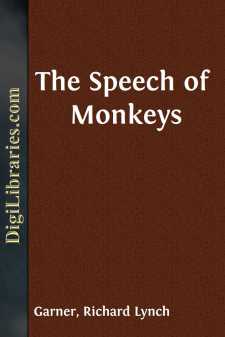Categories
- Antiques & Collectibles 13
- Architecture 36
- Art 48
- Bibles 22
- Biography & Autobiography 816
- Body, Mind & Spirit 145
- Business & Economics 28
- Children's Books 18
- Children's Fiction 14
- Computers 4
- Cooking 94
- Crafts & Hobbies 4
- Drama 346
- Education 58
- Family & Relationships 59
- Fiction 11831
- Foreign Language Study 3
- Games 19
- Gardening 17
- Health & Fitness 34
- History 1378
- House & Home 1
- Humor 147
- Juvenile Fiction 1873
- Juvenile Nonfiction 202
- Language Arts & Disciplines 89
- Law 16
- Literary Collections 686
- Literary Criticism 179
- Mathematics 13
- Medical 41
- Music 40
- Nature 179
- Non-Classifiable 1768
- Performing Arts 7
- Periodicals 1453
- Philosophy 66
- Photography 2
- Poetry 897
- Political Science 203
- Psychology 45
- Reference 154
- Religion 516
- Science 126
- Self-Help 86
- Social Science 82
- Sports & Recreation 34
- Study Aids 3
- Technology & Engineering 59
- Transportation 23
- Travel 463
- True Crime 29
Our website is made possible by displaying online advertisements to our visitors.
Please consider supporting us by disabling your ad blocker.
The Speech of Monkeys
Description:
Excerpt
CHAPTER I.
Early Impressions—First Observations of Monkeys—First Efforts to Learn their Speech—Barriers—The Phonograph Used—A Visit to Jokes—My Efforts to Speak to Him—The Sound of Alarm inspires Terror.
From childhood, I have believed that all kinds of animals have some mode of speech by which they could talk among their own kind, and have often wondered why man had never tried to learn it. I often wondered how it occurred to man to whistle to a horse or dog instead of using some sound more like their own; and even yet I am at a loss to know how such a sound has ever become a fixed means of calling these animals. I was not alone in my belief that all animals had some way to make known to others some certain things; but to my mind the means had never been well defined.
FIRST OBSERVATIONS OF MONKEYSAbout eight years ago, in the Cincinnati Zoological Garden, I was deeply impressed by the conduct of a number of monkeys occupying a cage with a huge, savage mandril, which they seemed very much to fear and dislike. By means of a wall, the cage was divided into two compartments, through which was a small doorway, just large enough to allow the occupants of the cage to pass from one room to the other. The inner compartment of the cage was used for their winter quarters and sleeping apartments; the outer, consisting simply of a well-constructed iron cage, was intended for exercise and summer occupancy. Every movement of this mandril seemed to be closely watched by the monkeys that were in a position to see him, and instantly reported to the others in the adjoining compartment. I watched them for hours, and felt assured that they had a form of speech by means of which they communicated with each other. During the time I remained, I discovered that a certain sound would invariably cause them to act in a certain way, and, in the course of my visit, I discovered that I could myself tell, by the sounds the monkeys would make, just what the mandril was doing—that is, I could tell whether he was asleep or whether he was moving about in his cage. Having interpreted one or two of these sounds, I felt inspired with the belief that I could learn them, and felt that the "key to the secret chamber" was within my grasp.
I regarded the task of learning the speech of a monkey as very much the same as learning that of some strange race of mankind, more difficult in the degree of its inferiority, but less in volume.
Year by year, as new ideas were revealed to me, new barriers arose, and I began to realise how great a task was mine. One difficulty was to utter the sounds I heard, another was to recall them, and yet another to translate them. But impelled by an inordinate hope and not discouraged by poor success, I continued my studies, as best I could, in the Gardens of New York, Philadelphia, Cincinnati and Chicago, and with such specimens as I could find from time to time with travelling shows, hand-organs, aboard some ship, or kept as a family pet. I must acknowledge my debt of gratitude to all these little creatures who have aided me in the study of their native tongue.
ACTING AS INTERPRETERHaving contended for some years with the difficulties mentioned, a new idea dawned upon me, and, after maturely considering it, I felt assured of ultimate success. I went to Washington, and proposed the novel experiment of acting as interpreter between two monkeys. Of course this first evoked from the great fathers of science a smile of incredulity; but when I explained the means by which I expected to accomplish this, a shadow of seriousness came over the faces of those dignitaries to whom I first proposed the novel feat....


